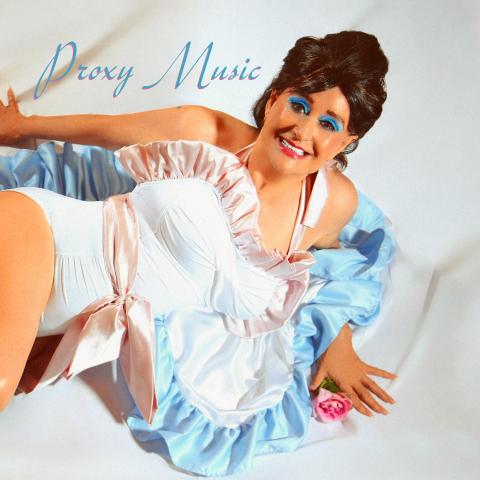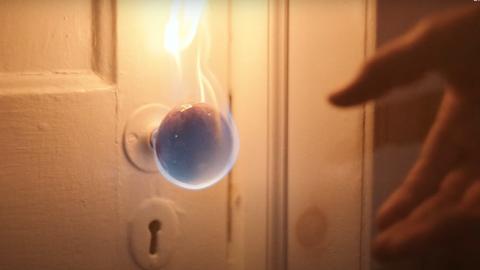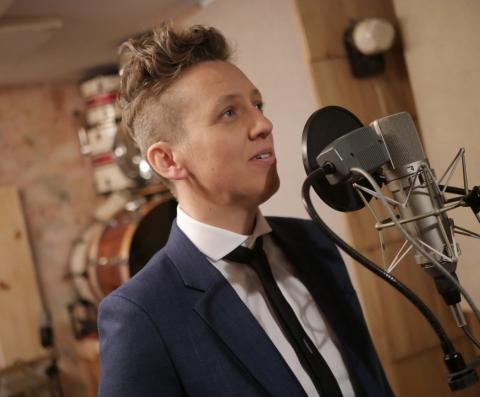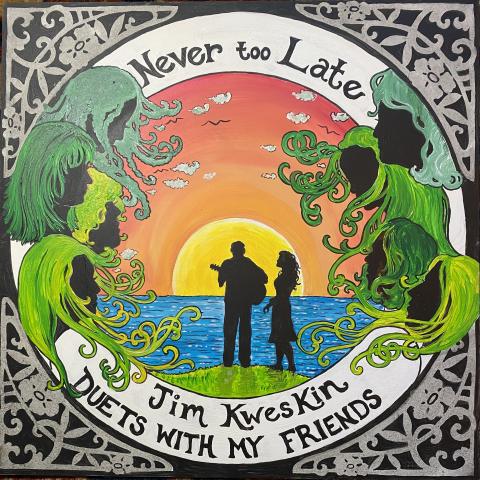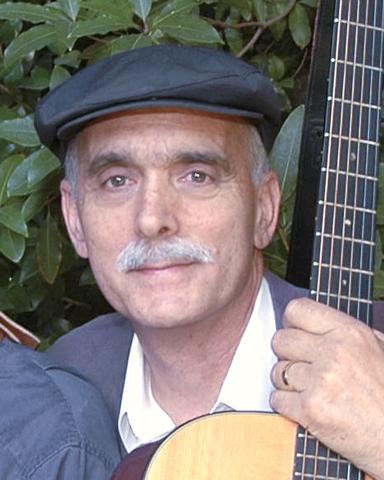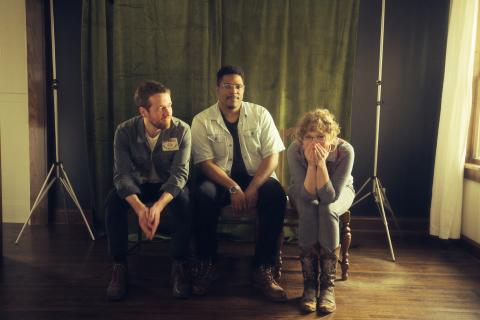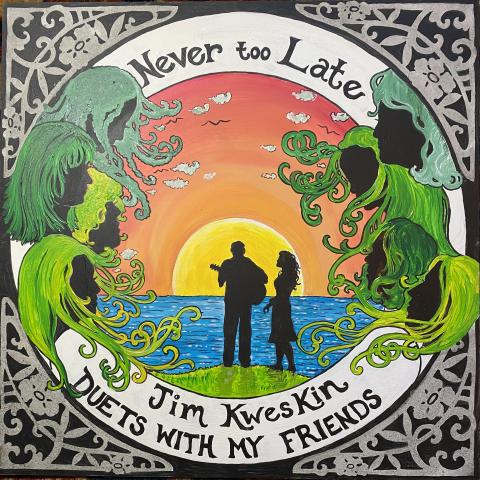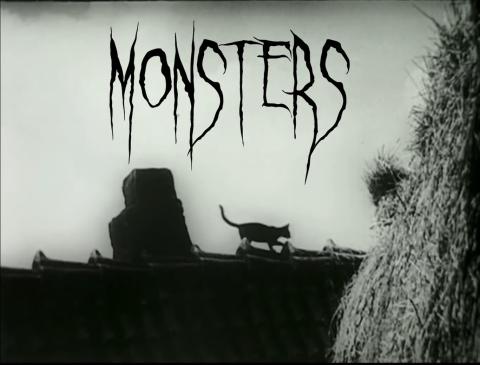On a recent afternoon in a cinderblock-walled rehearsal room in Brooklyn’s Prospect Park neighborhood, a gem of the British folk-rock movement is returning to life. Fronting a small band, Tammy Faye Starlite, a petite blonde with a commanding voice, is throwing herself into Richard and Linda Thompson’s “Hokey Pokey,” jumping up and down during instrumental breaks.
As Starlite sings, a small, thin woman — in khakis, crisp white sneakers, a blue polo shirt and a sky-blue baseball cap, her brown hair pulled back — rises from her seat on the sidelines. Arms folded, she walks to different corners of the room, head down, listening to the music. Every so often, she moves her hands with the rhythm or does the slightest of jigs.
The only thing Linda Thompson isn’t able to do is sing along with a tune she recorded five decades ago. “I can’t,” she says, sitting back down on a folding chair. “I mean, I really wish I could. It’s enough for me to speak.”
Now 76, Thompson is a grand dame of the British folk scene. Although she made records (and sang on British TV commercials) before she met and married Richard, it’s her work with him, in the Seventies and Eighties, for which she’s best known. Although Richard wrote most of their material, Linda took the lead on some of their most haunting songs: “I Want to See the Bright Lights Tonight,” “Walking on a Wire,” “The Great Valerio,” “Dimming of the Day.” Her delivery was “the clearest, bell-like, unfettered, unencumbered and unpretentious voice,” says their son Teddy Thompson, also a singer and songwriter.
Onstage, many of her Sixties peers are beginning to show the wear and tear on their voices after decades of touring and recording. Thompson, though, didn’t have a choice but to pull back. Starting in the early Seventies, she developed her first case of spasmodic dysphonia, a neurological disorder in which the vocal cords go into spasms.
In Thompson’s case, she says it was caused by trauma. In 1973, when she was pregnant with her and Richard’s first child, he became a Muslim, and the two left the music scene for three years to spend time in the Sufi community. “It was feeling maybe I was in the wrong place at the wrong time,” she says. “It was my first pregnancy and my first husband, and I was just feeling panicked about being drawn into Sufism, which frightened me a bit. It was kind of a punitive regime, especially for women. That’s what did it for me.”
The condition appeared when the Thompsons were making Hokey Pokey, their first album together after he’d left Fairport Convention. “I found that I couldn’t breathe properly,” she says. “I thought it was my pregnancy. But it was dysphonia. It was quite hard to diagnose, because doctors didn’t know much about it. It was very freaky and scary, because you just don’t know what’s happening.”
Thompson’s condition has receded and returned periodically since but has accelerated in the last few years. With the help of an occasional Botox injection, Thompson can sometimes speak as if nothing’s amiss. But singing is now part of her past. She says her situation isn’t as debilitating as Celine Dion’s “stiff-person syndrome,” also a neurological disorder, but in terms of its impact, Thompson feels they’re similar. “It’s the same thing, although hers is a little more serious,” she says. “But dysphonia is a neurological ailment. But once it’s happened, it’s like Parkinson’s: you can’t switch it off. And it’s just getting worse.”
Just before the pandemic, Thompson had an idea for a song, “Or Nothing at All,” and told her son Teddy that she’d love to hear their friend, the singer Martha Wainwright, perform it. That idea slowly blossomed into Proxy Music, an entire album of new Thompson songs (some co-written with Teddy and other collaborators) sung by others, including Wainwright, her brother Rufus, the Proclaimers, and British folkie Eliza Carthy. “I think everybody would like to write a song,” Thompson says. “Whether you could write a good song or not is a different matter. When I couldn’t sing, I had to do something. So I wrote. And to hear other people sing your songs is fantastic.”
For Teddy, who is also overseeing two tribute concerts to his mother, in New York and London, Proxy Music serves as a way to remind people of her work. “I’m very protective of my mum and her legacy as a musician,” says Teddy. “It irks me a bit to say this, but her legacy will be that she was a really great singer for a very short amount of time. As far as recordings with my dad, that’s only five, seven years. That sort of thing is attractive; it burns so bright for a short amount of time. So I’m hoping that people will remember those two bookends, including her second act as a songwriter.”
Starlite is just one of several guest singers who will arrive at this decidedly no-frills rehearsal space to practice a few of Thompson’s songs for the New York show, scheduled for the following night at City Winery. The lineup will ultimately include Martha Wainwright, Amy Helm, Syd Straw, and the Bangles’ Vicki Peterson. At the studio, Thompson greets them all warmly. The only time she is anywhere near a microphone is when she occasionally walks over to her son and makes suggestions for guitar parts.
“Singing is a fantastic way to express yourself,” she says during a break. “And I miss it a lot. I even miss being able to sing in the shower. But I don’t let it get me down. I can’t. I had it until I was 60-something. So, you know, that will have to do.”
AS AUSTERE AND SOMBER AS HER MUSIC can be, both with her ex-husband and on her own, Thompson is hardly dour in person. During a Zoom chat with RS a week before the show rehearsals, she was chatty and witty, proudly explaining the “Mum” tattoo on her upper right arm: “My mother had just died and I was in New York at three in the morning drunk and I stumbled into a tattoo parlor.” The tattoo artist was about to spell it “mom” before she corrected him.
The cover of Proxy Music — a parody of Roxy Music’s first album, with a tarted-up Thompson in wig and makeup — was an intentional goof. “I just thought it was funny to be an ancient pinup, and it was too good an opportunity to pass up,” she says. “It’s made for a lot of interest. I should have taken notice of album covers before, because I just never bothered. I would say to people, ‘Just do whatever.’ But now I think it’s good to do something controversial on the cover.”
Born Linda Pettifer in London and partly raised in Scotland, Thompson became part of the British folk-rock scene that also birthed Fairport Convention and its most famous graduates, Sandy Denny and Richard Thompson. For a brief period, Nick Drake was a sorta-boyfriend. “It was a weird thing,” she recalls of the low-key Drake. “He would just show up at my house and play songs and we’d hang out. But it wasn’t — what can I say? — some great passion. It was very dispassionate. But he was amazing. I wish I’d had recordings of all those songs he sang in my living room.”
She and Richard married in 1972 and soon began making records together. She says she doesn’t have what she calls the “horror stories” that other women in the music business did at the time. “But you did have the condescension and the ‘you can’t possibly know what you’re talking about,’” she recalls. “You couldn’t possibly say, ‘What about a mandolin here?’ They’d go, ‘What?’ But then ten minutes later they’d go, ‘Maybe we should try a mandolin on this.’ It was just the way it was. I became used to circumnavigating.”
When her first case of dysphonia kicked in, Thompson says it was manageable for a while. After a few hours in a studio, she would find that her voice would come back, but it was, she says, “very time consuming and annoying for everyone concerned. I couldn’t do anything quickly anymore.”
In 1982, Thompson left her for another woman he would soon marry, and the couple still had to carry on with a tour — ironically, to promote an album, Shoot Out the Lights, that was their most lauded. In what she calls “a delayed adolescence,” she decided to cope during the trek by drinking and taking antidepressants. (She would also express her anger at Richard by occasionally tripping him as he walked onstage.) The culmination, she says, was the night she passed out in front of an L.A. club and was rescued by Linda Ronstadt, who took her into her home and helped nurse her back to health. Ronstadt’s friend Jane Fonda came by and gave Thompson a copy of her then-ubiquitous workout guide. “She said, ‘Do all the exercises in this book,’” Thompson says, using her fingers to conjure Fonda’s legs on its cover and then making a motion with her hands that she chucked it.
Teddy, who was born in 1976, didn’t learn about his mother’s issues until later in life. “She just put music to one side and went about her life raising us [he and his sister Kami] and being a normal mother,” he says. “There was no sort of announcement of her saying to me, ‘I’m not going to sing anymore.’ It was just a slow petering out.” Looking back now, especially at the records she made, Teddy can hear the onset of her condition. “If you didn’t notice at the time, you can hear certain records now and go, ‘Oh, I can hear how she’s having trouble coming in at that right time.’”
On her own, Thompson made One Clear Moment, her first solo album, in 1985. An overproduced, synth-dominated record, she now calls it “ridiculous” (it’s the only time she sounds irked). But a few years later, Thompson’s bank account was fortified when one of its songs, “Telling Me Lies,” was covered by Ronstadt, Emmylou Harris, and Dolly Parton. A follow-up album, recorded in Nashville, was never finished (“There was a kind of slickness to the tracks that didn’t really suit me”), and with that and her vocal issues, Thompson began beating a retreat. She made more money from a jewelry store in London than in music: “It’s crazy, but, you know, I never expected to make money from folk music.”
A few albums followed, including 2002’s more acoustic Fashionably Late, which was instigated by the death of her mother and featured contributions from Richard. “Time heals all wounds once you get old,” Teddy says of the family dynamic. Proxy Music occasionally alludes to this stage of Thompson’s life; one song, “I Used to Be Pretty,” seems especially biting. “Well, I did used to be pretty,” she says matter of factly. “And it’s funny. You don’t realize when you have it when you’re pretty young. And once it’s gone, you’re kind of invisible.” She laughs. “But you know, that’s okay. It’s nice to be pretty.”
Proxy Music is also weighty in the sense that it may be Thompson’s last record of any kind; she knows there isn’t a huge market for Celtic-influenced songs like hers. She also chafes when the word legacy is brought up: “Legacy is a male concept. My kids are my legacy.”
Starlite finishes a run-through of “Hokey Pokey,” and Thompson claps and shouts “woo-hoo!” As she rehears songs from her past, Thompson says a few evoke an unsettling memory or period in her life. “And that’s good, because it means it’s affecting me,” she says. “I thought I was dead inside.”
Luckily, “Hokey Pokey” isn’t one of them. “God, that was 50 years ago!” she says of her marriage to Richard before referencing the song’s sly connection between sex and dessert. “It does make me want to have ice cream, though.”
Full Article











